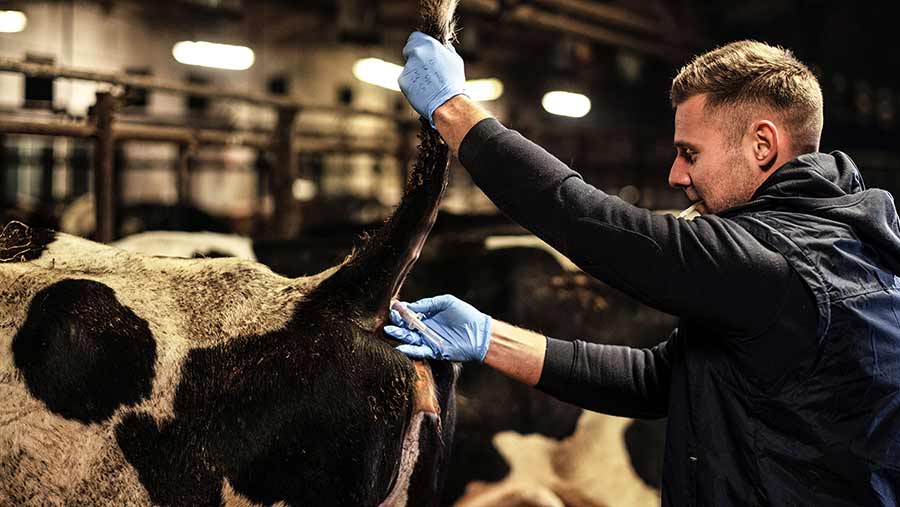New figures show depth of worsening UK vet crisis
 © Adobe Stock
© Adobe Stock Senior vets have warned of a deepening labour crisis in animal healthcare, with EU staff numbers down by two thirds and soaring demand for export certification.
Figures released by the Royal College of Veterinary Surgeons (RCVS) showed EU vet registrant numbers fell by 68% last year, to 364 from 1,132 in 2019.
The British Veterinary Association (BVA) said the shortages were due to post-Brexit immigration policy and continuing staffing difficulties caused by the Covid pandemic.
See also: Grower tells Eustice organic manure solution is a ‘fairytale’
The organisation also warned that falling staff numbers were set against a backdrop of ballooning red tape related to new EU export rules.
The workforce figures sit uneasily against separate statistics which show how demand for veterinary certification of animal products has rocketed since Brexit.
The BVA said data from the UK’s Animal and Plant Health Agency (Apha) suggested applications for food-related export health certificates spiralled by 1,255% between 2020 and the end of 2021.
That percentage rise represented an increase in applications from 22,990 in 2020 to 288,558 in 2021. Yet this is likely to be an underestimate, as it excludes multiple certificates covered by a single request, and domestic and equine applications.
It also failed to illustrate the total cost to businesses which had to meet the costs underpinning these new requirements, the BVA added.
It referred to the situation as a perfect storm that could have wide-ranging direct and knock-on effects, especially in international trade and public health.
Why is the BVA concerned?
The UK’s veterinary workforce is heavily reliant on EU registrants, with 29% of the existing workforce made up of vets who graduated in the EU.
In 2019, RCVS data suggested that nearly half (48%) of new registrants graduated in the EU, 42% in the UK and 10% in third countries.
Longstanding recruitment and retention challenges in the profession made the post-Covid, post-Brexit situation even worse, the BVA said.
James Russell, BVA senior vice-president, suggested that large-animal practices could be hit hardest. “The nosedive in EU registrants since Brexit, coupled with soaring demand for veterinary certification, is creating a storm of shortages in the profession,” he said.
“It’s absolutely critical that vets get as much support as possible to keep on top of workloads and navigate continued challenges ahead.”
Mr Russell said he appreciated that the government was working to alleviate the difficulties with measures such as more vet school places and better digitisation of the certification process.
“But it’s an uphill struggle to comfortably cover all the work currently required. Moving some vets around to plug gaps in cover is just robbing Peter to pay Paul,” he said.
“This can lead to issues with backfilling roles in other areas which desperately need to keep staffing levels up, such as large-animal work. The potential consequences are worrying.”
If long-term solutions to veterinary workforce shortages could not be found, there would be impacts on animal welfare, public health and international trade, he warned.
